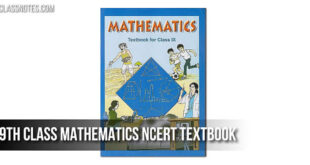Question: How was democracy restored after the coup, in Chile?
Answer: General Augusto Pinochet, the military ruler of Chile, decided to hold a referendum in 1988. The General was very confident that he would win the referendum, and that the people would want him to continue in power.
But the people of Chile wanted a democratic rule. General Pinochet lost the referendum, thus losing his political and military powers. The brutal and cruel dictatorship came to an end.
Michelle Bachelet, a medical doctor and a moderate socialist, was elected the President of Chile, in the free Presidential elections, which was held in January 2006. Democracy was restored in Chile.
Question: What was the situation in Poland in the 1980s?
Answer:
In the 1980s Poland was ruled by the Polish United Workers’ Party. This was a Communist party. The government of the Soviet Union controlled the government in Poland. In a Communist Country people could not choose their leader or speak freely against their leader. People were put in prison for opposing the government. Independent Trade Unions were not allowed in Poland.
On 14 August 1980, the workers of Lenin Shipyard, in Gdansk, went on a strike. This shipyard belonged to the Government and strikes were illegal. The strike started because a women crane operator was dismissed from service in an unjust manner. Soon Lech Walesa, joined the strike.
Lech Walesa was an electrician in the shipyard. He was dismissed from service, many years ago, because he had demanded higher wages.
The strike began to spread across the whole city. The workers started raising greater demands.
They wanted the right to form independent trade unions.
They wanted the release of political prisoners.
They wanted an end to censorship of the press.
Question: Describe a Communist State.
Answer: A Communist state is a state governed by a communist party without allowing other parties to compete for power. The state controls all the big property and industry
Question: What was the out come of the strike in Poland?
Answer: Under the guidance of Lech Walesa, the strike became a great movement. Soon the Communist government relented and signed a 21-point agreement with Lech Walesa.
The main features of the 21-point Agreement were as follows:
- The Government recognized the workers’ right to form independent trade unions
- The government also granted trade Unions the right to strike
- A new trade union called Solidarity was formed for the first time.
- Solidarity swept across Poland and had about one crore members.
Question: What was the plight of the Solidarity Trade union in Poland?
Answer: Solidarity Trade Union brought to light the widespread corruption and mismanagement in the government. The Polish government was not happy with this. In the year 1981, the government imposed martial law in the country.
Thousands of Solidarity members were jailed. Freedom to organise, protest and express opinions was once again taken away from the people.
Question: What were the similarity between the two Governments in Chile and Poland?
Answer: The Government in Chile under General Augusto Pinochet and the Government in Poland under the Polish United Workers’ Party, were both non- democratic governments. There were many similarities between these two governments.
The similarities were:
- The people could not choose or change their rulers.
- There was freedom of expression.
- People could not form political associations.
- People were not permitted to organize protests or initiate political action.
Question: What is “universal adult franchise”?
Answer: The right to vote, granted universally to all adults, whether they are men or women, rich or poor, white or black is called ‘universal adult franchise’. It is also known as ‘universal suffrage’. India gained ‘universal adult franchise’ in the year 1950.
 Class Notes NCERT Solutions for CBSE Students
Class Notes NCERT Solutions for CBSE Students



